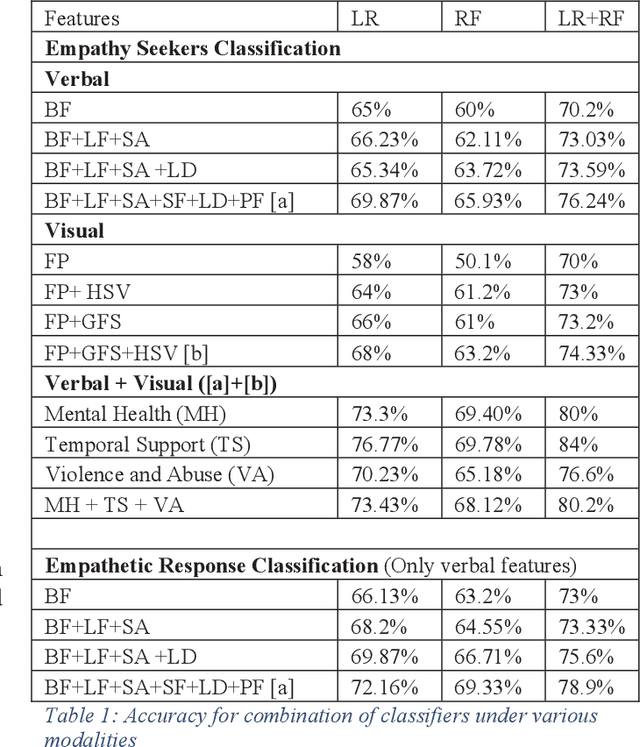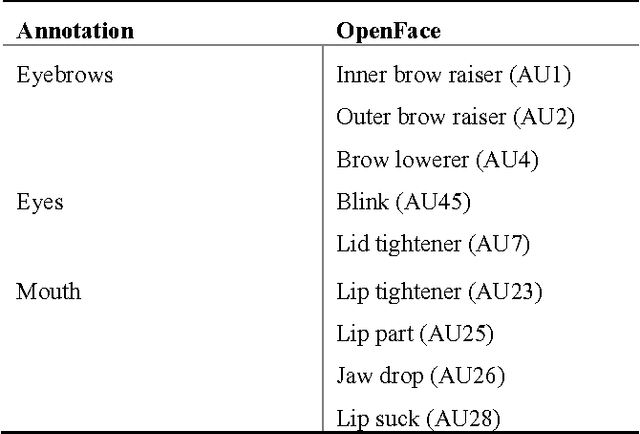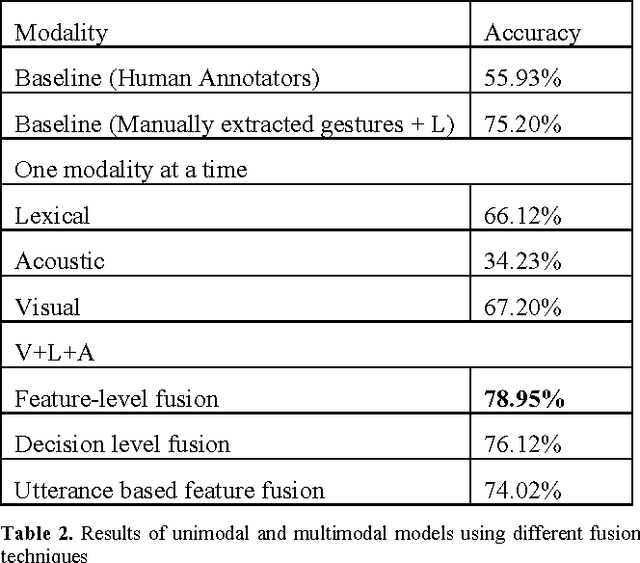Sairam Tabibu
"Hang in There": Lexical and Visual Analysis to Identify Posts Warranting Empathetic Responses
Mar 12, 2019
Abstract:In the past few years, social media has risen as a platform where people express and share personal incidences about abuse, violence and mental health issues. There is a need to pinpoint such posts and learn the kind of response expected. For this purpose, we understand the sentiment that a personal story elicits on different posts present on different social media sites, on the topics of abuse or mental health. In this paper, we propose a method supported by hand-crafted features to judge if the post requires an empathetic response. The model is trained upon posts from various web-pages and corresponding comments, on both the captions and the images. We were able to obtain 80% accuracy in tagging posts requiring empathetic responses.
The Truth and Nothing but the Truth: Multimodal Analysis for Deception Detection
Mar 11, 2019


Abstract:We propose a data-driven method for automatic deception detection in real-life trial data using visual and verbal cues. Using OpenFace with facial action unit recognition, we analyze the movement of facial features of the witness when posed with questions and the acoustic patterns using OpenSmile. We then perform a lexical analysis on the spoken words, emphasizing the use of pauses and utterance breaks, feeding that to a Support Vector Machine to test deceit or truth prediction. We then try out a method to incorporate utterance-based fusion of visual and lexical analysis, using string based matching.
 Add to Chrome
Add to Chrome Add to Firefox
Add to Firefox Add to Edge
Add to Edge